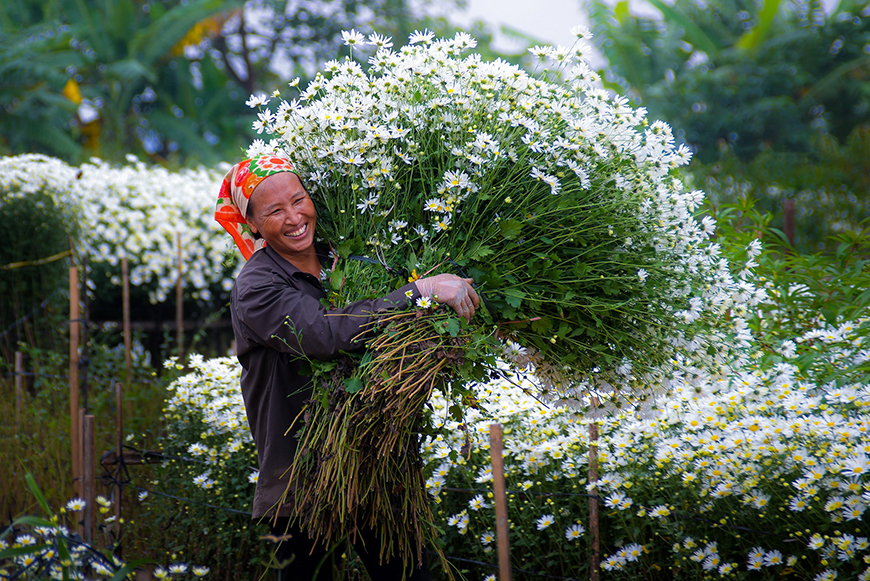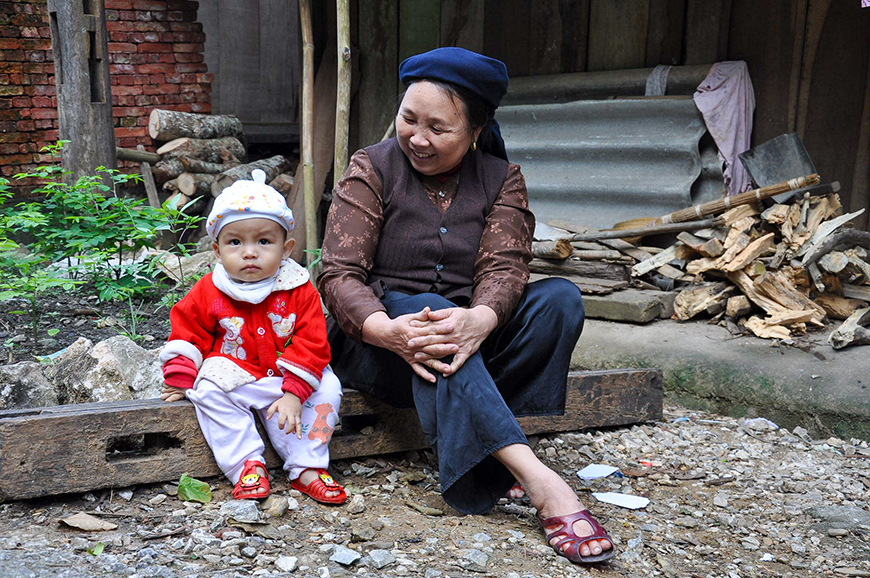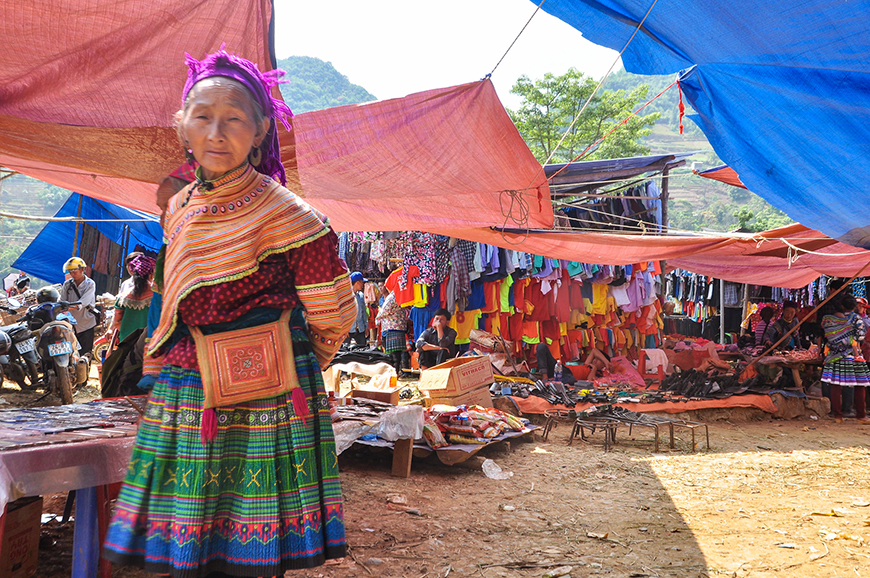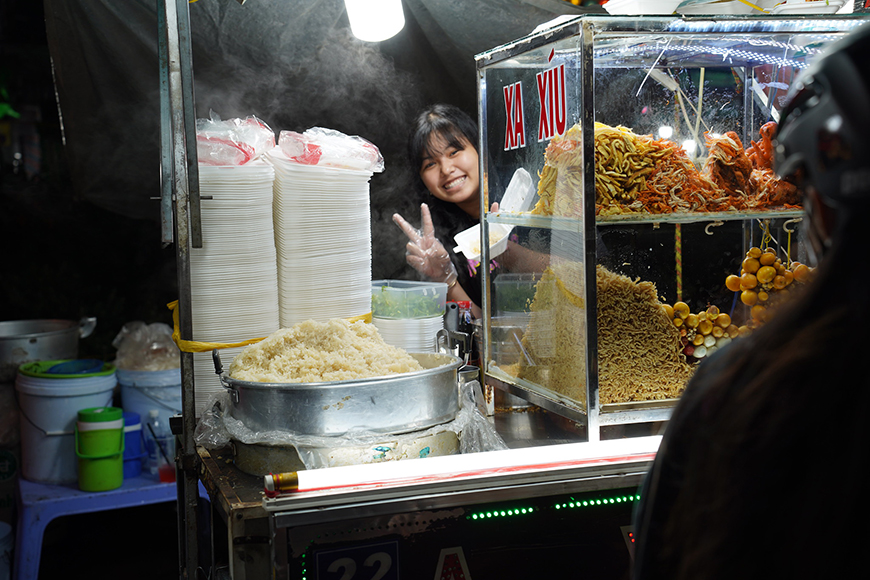
Woman in Vietnamese Society - Photo : Mr Linh's adventures
Vietnam, a country with a rich history and culture, offers a unique perspective on the place of women in society. Over the centuries, Vietnamese women have contributed to the country’s development while maintaining remarkable strength and resilience.
INTRODUCTION
Vietnam, a nation with a rich history and captivating culture, is also a country where women occupy a distinctive and evolving position. At the heart of this society is the Vietnamese woman, whose role and perception have changed over the centuries. From Confucian influence to modern emancipation, feudal traditions and matriarchal resistance, the Vietnamese woman’s journey is a captivating tale of strength and resilience.
1. THE VIETNAMESE WOMAN THROUGH HISTORY
11. The Confucian and feudal imprint
The impact of Confucianism, introduced in Vietnam more than 2000 years ago, has left a lasting imprint on society. This belief system promotes the education of women and recognizes their importance in the transmission of moral values. However, it also imposes a certain level of subordination on men, often limiting women to domestic roles. Despite this, the influence of the Vietnamese feudal civil code, known as "Hong Duc" code, tempered this submission by granting certain rights to women, such as the right to own property and receive an education.
A little history: Confucian principles and the place of women in society
Confucius (551-479 BC), a Chinese philosopher, had a significant impact on Vietnamese society and Asia in general. Its teachings, contained in the Analects, support various values and moral principles that have influenced the position of women in traditional society.
The fundamental principles of Confucianism
Confucianism is based on several key concepts:
- ♦ Ren, which encompasses kindness, humanity and goodness.
- ♦ Li, which includes customs, etiquette and morality.
- ♦ Xiao advocates filial piety, respect and submission to the ancestors.
- ♦ Zhong means loyalty and faithfulness to one’s superior or lord.
Application of Confucian Principles to Women
In Confucian society, women were subject to a number of specific rules and obligations:
- ♦ Submission to male authority: The woman had to obey her father, then her husband, and finally her sons. Confucius said: "Women must follow three obediences: when they are young, they obey their father; when they are married, they obey their husband; when they are widows, they obey their sons."
- ♦ Virtue and chastity: The woman had to be chaste and virtuous, and never indulge in debauchery or sensuality.
- ♦ Limited education: Education of girls was often neglected compared to that of boys.

The Role of woman in Vietnamese Society - Photo : Mr Linh's adventures
To sum up…
The position of women in Vietnamese society was deeply influenced by Confucianism. While some aspects of this teaching may have contributed to the protection and enhancement of women, others have led to their submission and exclusion from certain areas of public life.
12. Exceptional female figures
Vietnam’s history is filled with extraordinary women who have defied norms and marked their time.
Throughout Vietnam’s history, there have been wars and struggles for independence, and Vietnamese women have always played an active role in these conflicts, highlighting their bravery as combatants and resistance figures. Among them are the Trung sisters, heroines of the resistance against the Chinese occupation in the 1st century AD, and the 18th century poet Ho Xuan Huong, emblematic figure of Vietnamese literature. True national heroes, the sisters Trung - Trung Trac and Trung Nhi - led a revolt against the Chinese occupation in 40 AD. Considered symbols of Vietnamese resistance, they raised an army of 80,000 women and men to fight the Chinese. As for the "Rebel Muse" Ho Xuang Huong (1772-1822), she gained her reputation thanks to her daring to address taboo topics such as sexuality and feminism. One of his most famous poems, "Banh Troi Nuoc" (Floating Sticky Rice Cake), uses the image of a cake to criticize the fate of women in society. Founder of the Vietnamese Women’s Union in 1930, Mrs Nguyen Thi Minh Khai (1910-1941), who was a key figure in the struggle for Vietnam’s independence. She was executed by French settlers in 1941. Another notable woman is Mrs Nguyen Thi Binh (born 1927), who played a crucial role in the Paris peace negotiations that ended the Vietnam War. In fact, she was the only woman to sign the Paris Peace Accords in 1973.
2- VIETNAMESE WOMEN IN MODERN SOCIETY
21. Independence and active participation
Since the end of the Vietnam War, significant progress has been made in gender equality in the country, coinciding with the gradual empowerment of Vietnamese women. Access to education and employment has become widespread, enabling them to participate actively in the economic and social life of the country. If we were to do a brief overview of this subject, we would highlight...
Access to education
The literacy rate of Vietnamese women is currently 97%, equivalent to the literacy rate of men. In primary and secondary schools, girls receive the same education as boys. In addition, women have also entered higher education, and today they represent more than half of the students.
Participation in economic life
Vietnamese women represent more than 50% of the country’s workforce and are present in all sectors of the economy, from agricultural work to senior management positions. Many Vietnamese women hold leadership positions in the private and public sectors, such as Vo Thi Anh Xuan, who has been Vietnam’s vice-president since 2021, Nguyen Thi Phuong Thao, CEO of Vietjet Air, the country’s first private airline, or Pham Thi Kim Dung, CEO of Vingroup, one of the largest conglomerates in the country.
22. Concrete progress, persistent challenges
Nowadays, Vietnam is considered one of the most progressive countries in Asia when it comes to gender equality. Today, many Vietnamese women are admired and respected for their talent and achievements. Whether they are world-renowned scientists or successful entrepreneurs, these women help showcase Vietnam’s greatness to the world.
However, despite these advances, challenges persist, such as wage disparities. On average, Vietnamese women earn 20% less than men for equivalent work. Vietnamese women also face issues such as domestic violence (one in three women in Vietnam has experienced physical or sexual violence from their partner) and gender stereotypes.

Hmong Woman - Photo : Mr Linh's adventures
3- MATRIARCHS OF MINORITY ETHNICITIES
Vietnam has an intriguing matriarchal heritage that can still be seen in some minority ethnic groups such as the Ba Na and Ede. In these societies, women hold decision-making power within the family and community, manage property and pass on surnames. For example, the Ba Na ethnic group, which resides in the Central Highlands of Vietnam, is known for its strict matriarchal system. Ba Na women manage finances, organize weddings and supervise religious ceremonies. As their neighbours Ede, women are responsible for the education of children and the choice of spouse. They also play an important role in conflict resolution and collective decision-making. Another example is the Co Tu ethnic group, which lives in the mountains of northern Vietnam, has a matrilineal system where women inherit land and family property. They are also responsible for the education of children and the worship of ancestors.
If the matriarchal societies of Vietnam offer an alternative model of society where women occupy a central place and where gender equality is a reality, they must at the same time face many challenges: discrimination, marginalization, difficulties in adapting to modern society or even risk of loss of culture and tradition.
4- MYTHOLOGY AND SPIRITUALITY: THE SACRED WOMAN
In Vietnamese mythology, women occupy a central position. Linked to the mother goddess Au Co, guardian figure of the country, they are often considered a source of life and prosperity. According to legend, Au Co descended from heaven and married Lac Long Quan, the Dragon Lord of the Seas. Together they had a hundred children who became the ancestors of the Vietnamese people. In addition to fertility, motherhood and protection, women also symbolize the unity and strength of the Vietnamese people.
There is also the goddess Lieu Hanh, protective deity of women and children, who is revered throughout the country. It symbolizes femininity, prosperity and inner strength.
Ancestor worship, omnipresent in Vietnam, also honors deceased women, considered benevolent protectors of the family, because they play a central role in the transmission of values and traditions to future generations.
Finally, it should be noted that the Vietnamese pantheon includes many female deities, such as the goddess of mercy, the goddess of the sea and the goddess of rice. They symbolize the different forces of nature and protect the Vietnamese people.

Smiling Vietnam - Photo : Mr Linh's adventures
5- THE FUTURE OF VIETNAMESE WOMEN
Vietnam is currently undergoing profound economic and social changes. The rise of an urban middle class and the opening of the country to the outside world offer new opportunities for Vietnamese women.
While older generations may still hold more conservative views, young Vietnamese women today are much more independent and ambitious. More and more women are pursuing higher education and careers outside the home. In the big cities in particular, it has become common to see women entrepreneurs, business owners, lawyers, doctors, engineers, etc. The government has also encouraged this change by enacting legislation to promote gender equality in the workplace and in politics.
However, full equality is not yet achieved. Women still face discrimination, unjust cultural expectations and lack access to certain opportunities for men. For example, they are underrepresented in leadership roles in business and politics. Traditional attitudes also mean that women still assume the majority of unpaid household tasks and caregiving responsibilities, in addition to any salaried work.
In a changing Vietnam, the future of women looks bright. By continuing to fight for gender equality and prioritizing girls' education, Vietnamese women can and will play a vital role in the country’s development. As younger generations shape social values, women’s empowerment is likely to increase. With continued progress in education, employment rights and societal attitudes, Vietnamese women are likely to achieve equal opportunities for leadership in all aspects of society in the coming decades.
TO CONCLUDE
The Vietnamese woman is a complex and fascinating figure, both forward-looking and rooted in her traditions. She is a key element of the ever-changing Vietnamese society due to its strength, resilience and dynamism.
► Some ideas of circuits to meet the Vietnamese people:
✅ Trekking on the Trails of Northern Vietnam 9 days 8 nights
✅ Off the beaten tracks North Vietnam 8 days 7 nights
✅ Best Vietnam tours package 12 days 11 nights